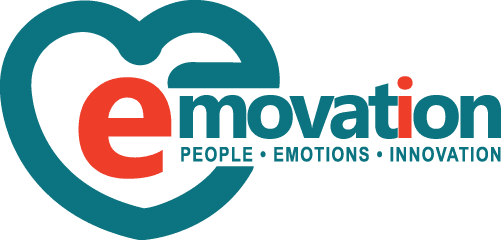In today’s hectic business environments, your organization’s success hinges on not only its workforce’s expertise and skills but also their ability to navigate complex human emotions.
Emotional intelligence (EI), meanwhile, is a critical skill that enables that, as it influences how your employees interact, collaborate, resolve conflicts, manage stress, and more.
To understand how cultivating this competency across your company results in a stronger, more harmonious, and desirable workplace, we’ll walk you through its intricacies.
What is emotional intelligence?
To start, the term EI was first popularized by Daniel Goleman in his 1994 book Emotional Intelligence: Why it Can Matter More Than IQ, and it refers to one’s capacity to properly recognize, understand, and manage their own emotions, as well as others.
Unlike IQ, which measures cognitive abilities, EI focuses on emotional and social skills that enable positive relationship-building and fair decision-making—all of which are essential to improving workplace communication, collaboration, and well-being.
These competencies, meanwhile, tackle how you:
- Handle and overcome challenges
- Manage moods, particularly yours and others’
- Take criticism
- Fuel and settle conflicts
Core emotional intelligence skills
Similar to other capabilities, EI is composed of core skills that can be developed and applied. When honed, these can easily enhance one’s personal and professional interactions:
Self-awareness
This skill acts as the foundation of EI, as it entails discerning your own emotional strengths and weaknesses. Self-awareness, basically, lets you recognize what triggers specific feelings, as well as how they affect your thoughts and behaviors.
Individuals with high levels of this competency are better equipped to manage stress and make decisions that align with their values and goals.
Self-regulation
Self-regulation, meanwhile, refers to the ability to effectively manage and control one’s emotions and reactions, specifically during difficult workplace scenarios.
The development of this skill revolves around staying composed and adaptable, which is vital to maintaining professionalism and a positive work environment.
Motivation
Within the context of EI, motivation refers to one’s inner drive to achieve goals and remain optimistic despite any challenges. Emotionally intelligent individuals, meanwhile, can possess a strong sense of purpose that fuels their work ethic and persistence.
Empathy
To put it simply, empathy tackles how well you can place yourself in others’ shoes. It allows you to understand and share their feelings, then gauge and acknowledge their perspectives and needs.
It heavily emphasizes building solid relationships through compassionate yet comfortable responses to various emotional cues and social situations. This, meanwhile, builds trust and team chemistry.
Social skills
This aspect stresses interpersonal abilities, primarily communication, collaboration, and conflict resolution.
Individuals who are socially proficient can build rapport, influence others, and navigate workplace dynamics, all of which are necessary for forming and maintaining fruitful relationships.
The importance of EI in the workplace
Cultivating EI across your organization positively impacts how your workforce navigates business situations and interacts with others. To give you a better idea, we’ll dive into its key benefits:
Strengthens character and leadership
Emotionally intelligent leadership can inspire teams and foster a positive work environment, as it considers individual circumstances before acting to motivate or manage personnel. It allows superiors to connect with their employees as well, all while guiding them towards success.
In fact, the global leadership development firm DDI even ranks empathy as the number-one leadership skill, as those who have it perform better in communication, coaching, and decision-making compared to those who don’t.
Higher job satisfaction
Workers with high levels of EI can manage stress effectively, communicate openly, and form positive relationships with their colleagues. Since their work experiences become more fulfilling, they tend to be more satisfied with their jobs as well.
Leadership, however, plays a central role in keeping employees satisfied, as they can directly influence their organization’s churn rate. Those who fail to manage or meet the needs of their people, in fact, can obstruct engagement and productivity within their company.
Emotionally intelligent superiors, on the other hand, recognize what keeps their teams healthy and committed, demonstrating why 93% of employees say they would stay with an empathetic employer.
Bridges generational gaps
Diverse workplaces typically have teams composed of employees from different generations—think of how Gen X, Millennials, and Gen Z end up in the same business unit.
EI creates a middle ground for such individuals, as it allows them to appreciate different perspectives and adapt their communication styles, which fosters more inclusive and cohesive groups.
Productive conflict resolution
Each employee has their unique values, personality, and approach to work. When gathered in one professional environment, friction becomes inevitable. EI, however, helps workers manage and resolve workplace conflicts effectively.
Through empathy, individuals can better understand the root causes of disputes, address concerns with compassion, and find mutually beneficial solutions.
Lower stress, better productivity
EI is critical to cultivating mentally healthy workplaces, as it involves building healthier coping mechanisms relating to challenges and stress.
Imagine you and colleagues squabbling over how a project should be handled. Rather than lashing out over an undesirable outcome, EI lets you step back, gather yourself, and respond more constructively.
By recognizing what emotions are triggered by specific situations and how they influence your thoughts and actions, the negative effects become more manageable.
Not to mention, minimizing work friction also creates a more positive work environment, which greatly benefits engagement and productivity.
In fact, the Harvard Business Review saw that organizations that emphasize nurturing emotionally intelligent employees enjoy higher levels of productivity and engagement compared to those that overlook it.
Resilience and adaptability
A workplace culture built on unselfishness, respect, and mutual understanding enables healthier relationships and support systems. This lets individuals perform well, even when faced with organizational developments triggered by industrial, technological, or cultural disruptions.
Personnel managers share a similar opinion, with 44% of them saying that EI is critical to leading teams through times of change.
Effective communication and collaboration
EI lets employees discern each others’ feelings, needs, and viewpoints, allowing them to recognize appropriate communication styles for any situation. As a result, they can avert any misunderstandings and facilitate harmonious workplace dynamics.
It even improves every level of communication and collaboration, as it entails knowing how much time and effort each team member can commit to producing quality output.
Strengthen relationships beyond work
EI can even extend beyond the workplace, as it helps your employees form more meaningful connections with one another. Since colleagues form strong bonds outside the office as well, you can enjoy a more connected and supportive company culture.
Builds trust
Trust is the foundation of any successful organization, and EI is the key to building and maintaining it. Workers who feel respected, understood, and appreciated, meanwhile, are more likely to believe in one another and become successful teams.
How to measure employee emotional intelligence
Knowing the upsides of EI isn’t enough. To actually cultivate it in the workplace, you must first determine whether employees need to develop it further.
Emovation can help in this regard, as we provide Genos Emotional Intelligence Assessments that measure your team members’ EI levels:
EI Workplace Behavior Assessments
These assessments measure how employees apply emotional intelligence in their day-to-day work interactions.
They paint a picture of how well individuals manage their emotions, communicate with others, and contribute to a positive work environment, then evaluate them in comparison to others.
EI Leadership Assessments
EI leadership assessments evaluate individuals in leadership roles, focusing on how they handle their emotions, motivate their teams, and handle conflicts.
When you demonstrate these capabilities, the more effective your leadership, as they let you inspire and guide teams effectively.
EI Sales Assessments
In sales, EI lets your employees understand customer needs, build relationships, and close deals. Our assessments measure the emotional and social competencies that contribute to sales success.
This lets you gauge how effectively your personnel can deliver excellent customer experiences and whether they need any improvements.
EI Recruitment Assessment
Recruiting emotionally intelligent people is essential to building a strong, cohesive team. This assessment evaluates a candidate’s EI, ensuring that you hire ones who positively contribute to your workplace culture.
This assessment also generates a report, providing recommended interview questions and an evaluation guide to help you find the best talent.
Wrapping up—Nurture EI to create a thriving workplace
EI has become a must-have skill in the workplace, necessary for enhancing job satisfaction, improving collaboration, and creating an environment where employees can flourish. By fostering it among employees, you position your organization for long-term success.
Not to mention, this brings the focus back to your workforce, showing them that they are valued, needed, and empowered to contribute their best to the company.
If you’re looking to measure and develop your team’s EI, utilize our Genos Emotional Intelligence Assessments, as they provide valuable insight into your employees’ emotional and social competencies. Then, to see Emovation’s assessments in action, simply request a demo!






Leave A Comment